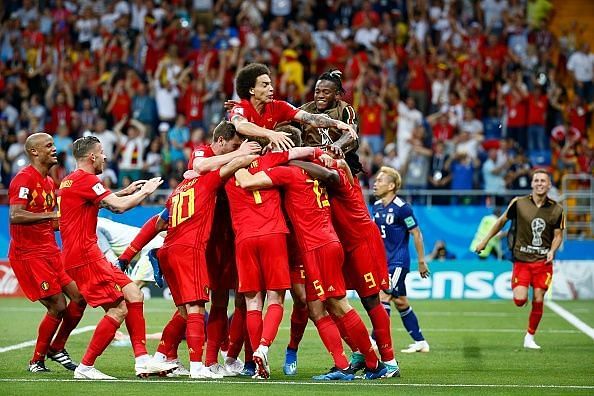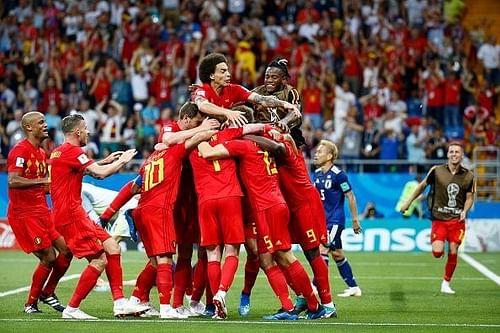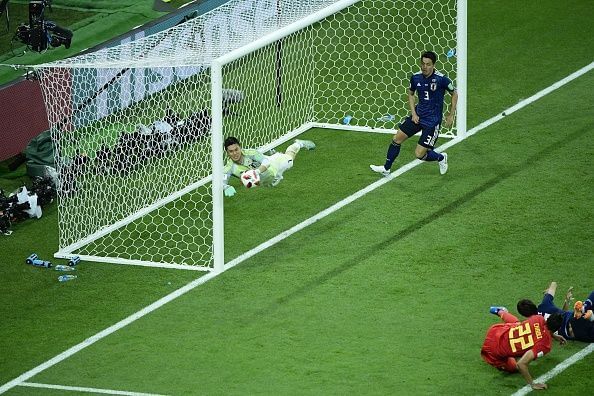
Belgium 3-2 Japan: Three things Japan got wrong

Substitutes Marouane Fellaini and Nacer Chadli inspired Belgium to a famous comeback from two goals down to defeat Japan in an enthralling World Cup Round-of-16 encounter.
After a goalless first half, the Asian outfit stunned the tournament favourites as Genki Haraguchi and Takashi Inui capitalized on defensive errors by Jan Vertonghen and Vincent Kompany to put their side 2-0 up within seven minutes of the restart.
Belgium manager Roberto Martinez responded by introducing Fellaini and Chadli in the 65th minute to devastating effect. Jan Vertonghen atoned for his own error leading to Japan’s first goal with a header from long range to halve the deficit before Fellaini rose highest from Eden Hazard’s cross to plant a thunderous header past Eiji Kawashima to level matters in the 74th minute.
The comeback was completed in the dying seconds as Belgium counter-attacked from a Japanese corner, resulting in Thomas Meunier’s low cross left alone by Romelu Lukaku and slotted home by Chadli to spark off wild scenes in a relieved Belgian camp.
We analyze the key areas where Japan threw the game away in an unforgettable encounter at Rostov:-
#3 Sending players up for the injury-time corner

94th minute, the scores are level at 2-2. The underdogs in such a situation would have ideally settled for extra-time and in the process, achieved a mental victory by taking the favourites all the way to the death. However, Japan decided to go for the kill within regulation time by committing men forward for a corner they won in injury-time.
The gamble failed spectacularly, as Belgium cleared their lines to initiate a counter-attack. With the world-class players that Belgium possess in their ranks that make up their golden generation of players, the result of that break was inevitable. Kevin de Bruyne provided the defence-splitting pass, Thomas Meunier crossed for Romelu Lukaku, who had the immense presence of mind to dummy it to an advancing and un-tracked Nacer Chadli to finish the job and with it, the fightback to send Japan to their knees.
The only explanation for Japan’s decision to go for the win could have been a psychological one, as they had already been hampered by throwing away a 2-goal advantage and the manager may have been sceptical about his team’s mental strength to last a further 30 minutes.